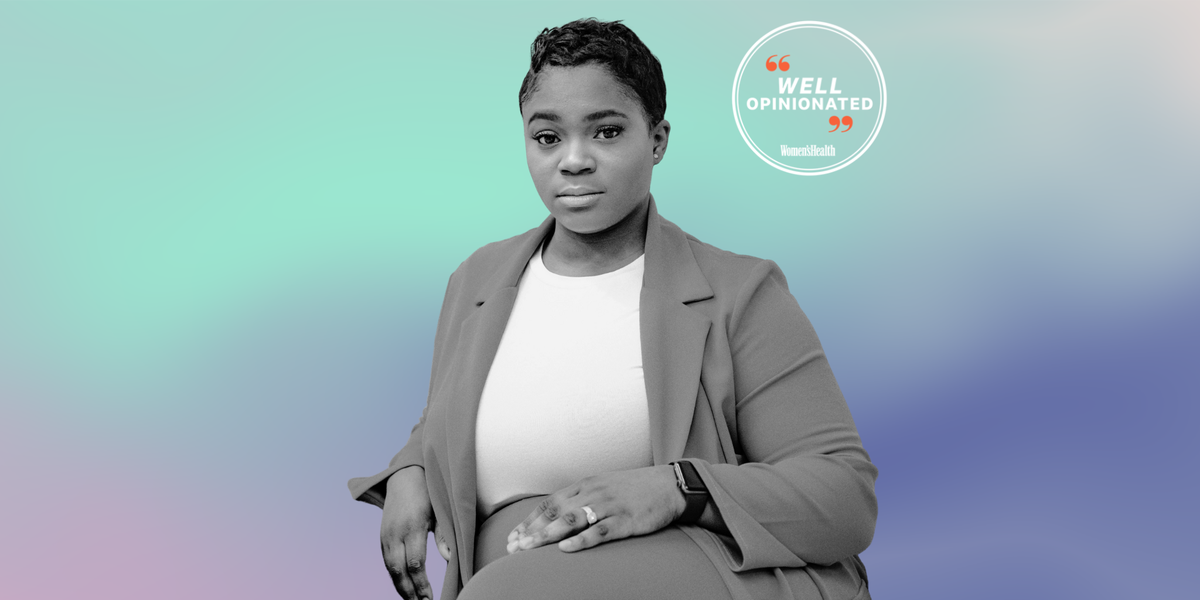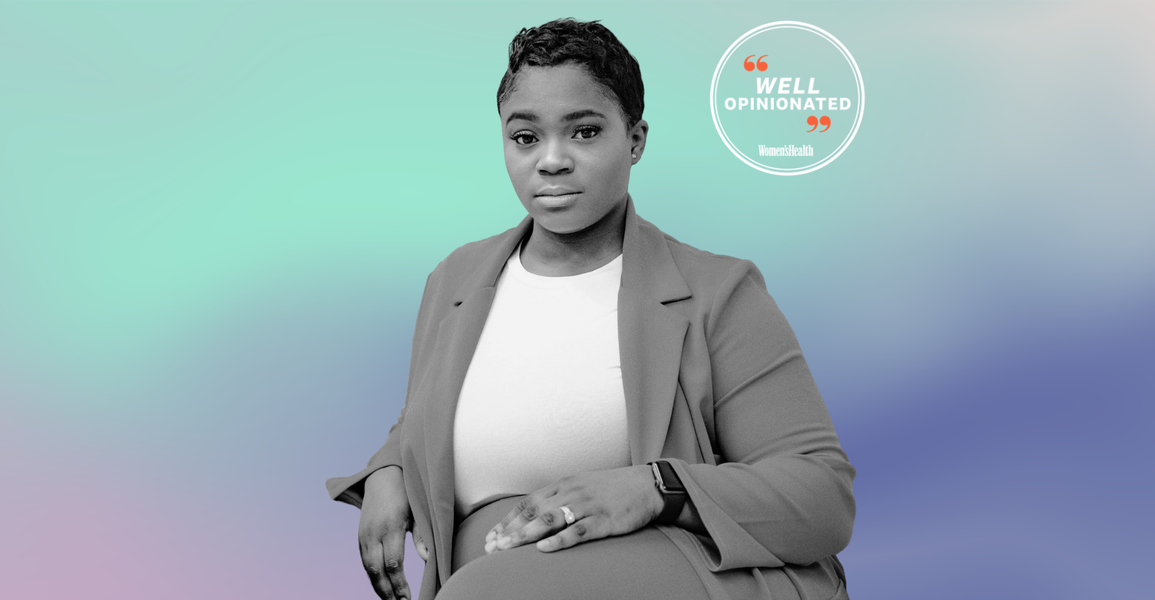
Trigger warning: This post contains mention of death and traumatic experiences that some may find upsetting
‘It turns out, it was not a fibroid, but cancer,’ wrote mother-of-two Jessica Pettway in a typically unfiltered update to her 160,000 followers on Instagram. ‘I was misdiagnosed all this time.’ The American influencer passed away in a Georgia hospice in March, leaving behind her husband Michael and their young daughters Kailee and Zoi.
From the moment she began her popular YouTube channel in 2013, Jessica has shared multiple aspects of her life – from fashion to beauty – garnering her a dedicated following. However, in her final year on earth, she selflessly used her platform to raise awareness of her health struggles in the hope it could help other women.
That included a heartbreaking post, in July 2023, that saw her detail how she was initially told – after continual heavy bleeding and extreme fatigue – that she had fibroids. These are non-cancerous growths that develop in or around the uterus and can cause symptoms like heavy periods, pain and bloating. According to the NHS, two in three women will develop at least one in their lifetime, usually between 30 and 50 years old, but their prevalence is known to be greater in Black women.
The trouble was, Jessica didn’t have fibroids. Eventually, the bleeding stopped but was replaced by labour-like pains. Upon her third hospital admission, she was told that her low blood supply meant she couldn’t have surgery, and it was only then that a biopsy was finally done in order to properly investigate the cause of her symptoms. ‘It didn’t take [the doctor] long before she looked at me and said, she could not even see my cervix because it was blocked by a huge mass,’ she recalled. By the time an oncologist went on to identify stage three cervical cancer, it was too late to save her life.
The news of Jessica’s passing promptly went viral, with many people suggesting online that the medical system had ultimately failed her because of her race. Her story triggered feelings of sadness, anger and frustration inside me, particularly because it reflected my own interaction within the healthcare system – not only the harrowing birth experience that prompted me to co-found the organisation Five X More to campaigning for Black maternal health outcomes in the UK, but because I’ve also had my own brush with cervical cancer.
I had a scare last year when abnormal cells were found in my cervix following a long overdue smear test – delayed because twice when I was invited to screening I was pregnant, when it is not recommended – leading to me having a procedure to have them removed. The level of changes in my cervix were high grade, and I was told by doctors that if they were left any longer, the next stage would have been cancer.
Jessica’s death is all the more tragic because her life was taken by a cancer that, according to the latest figures, is 99.8% preventable thanks to the national HPV vaccine scheme and regular cervical screening – like the kind that ultimately flagged my own cell changes. This ensures that while symptoms are easy to mistake for other issues like hormonal imbalances or infections – such as, according to the NHS, vaginal bleeding, unusual discharge, pelvic pain and discomfort during intercourse – rates have been declining. In fact, since the early 1990s, Cancer Research UK reports that its incidence has decreased by 25%.
While I don’t know the precise details of Jessica’s medical care, I can’t help but think that by presenting at hospital multiple times with severe symptoms, she did all she could for doctors to be able to realise something was very wrong. I can’t help but think that her story is indicative of the much wider systemic issue that Black women face – with disparities in healthcare that lead to detrimental outcomes for us, whether gynaecological cancers or maternity care, on both sides of the Atlantic.
The unequal reality
While in the UK the rates of cervical cancer are actually lower among Black and Asian women, the same can’t be said for other types of cancers. One study showed that Black women were more likely to have late-stage diagnosis for cancer of the ovaries, uterus, colon and breast compared to white women – with research finding that those diagnosed with the latter have a higher mortality.
‘There’s a desperate need to be intentional about inclusion and diversity if we really want to make a difference,’ says Athena Lamnisos, CEO of women’s health charity The Eve Appeal, to me. ‘When you put it together with the lack of diversity in cancer research, you have a very worrying picture.’ The organisation hears from women every day who are impacted by late or misdiagnosis, because either they haven’t recognised worrying symptoms or their doctor hasn’t.
There are similar stark disparities in maternity care in the UK. According to data, Black women are 3.8 times more likely than white women to die during pregnancy, childbirth and in the six- week period afterwards. This number was previously five times more – inspiring the Five X More campaign, which I co-founded with Clotilde Abe.
Back in 2017, when I was about to welcome my son into the world, I was diagnosed late with preeclampsia that led me to be induced. I wasn’t believed when I told the midwife I was in labour, and was left for hours without pain relief and ended up having an assisted birth using forceps. This could all have been avoided if I had been listened to in the first place, and the hospital did eventually informally acknowledge their wrongdoing.
There are further disparities in care for cardiovascular disease, diabetes, autoimmune conditions such as lupus and mental health between Black and white women in the UK. While Black women experience the same rates of endometriosis as white women, we are less likely to receive a diagnosis. This can have a spiralling effect, whereby a condition is usually seen as white and therefore healthcare professionals might develop an ingrained bias that Black women don’t suffer as much.
Beyond specific conditions, Black people generally report negative experiences within the UK’s healthcare system, with clear evidence of discrimination from healthcare staff. A study also frighteningly found that many medical students held false beliefs about biological differences, such as the myth that ‘Black people’s skin is thicker than white people’s skin’ – with their pain rated lower and less accurate treatment recommendations.
All of which paints a very bleak picture for Black women. Because these experiences not only affect our immediate health, but can sometimes discourage us from interacting with services, causing delays in seeking help. Research suggests this leads to worse overall health outcomes.
Following the announcement of Jessica’s passing, I saw murmurings among white women on social media who argued that what happened was not a race issue, and that misdiagnosis can affect women from all backgrounds. This is true – and something we’ve seen in the government’s Birth Trauma inquiry published last month – but the data shows the outcomes are disproportionately worse among Black women. Addressing the challenges we face doesn’t diminish the experiences of others.
Know your body
In addition to more inclusive healthcare, Jessica’s story highlights the need for more awareness among women about when to see a doctor. In her post, she mentioned that she ‘asked other women if they experienced [heavy bleeding] before and majority of them said they have. [She] thought, well maybe this is a “normal” thing that women go through’. As such, she didn’t seek help until she was passing out from huge blood loss.
‘Jessica was failed by the system because it seems that no one thought to properly examine her – they simply concluded that because she is a Black woman it must just be fibroids,’ notes Dr Christine Ekechi, a consultant obstetrician and gynecologist who appears on the BBC podcast That Time Of The Month. ‘Heavy bleeding and intense pain are not normal.’
What’s more, as Dr Ekechi insists, fibroids are still a serious issue in and of themselves. Dawn Heels, a lawyer, founded The Guidance Suite after being fobbed off while suffering from the condition for six years. After experiencing heavy and painful periods from the age of 14, a scan revealed she had two fibroids.
Her doctor at the time told her there was ‘nothing to worry about’ and that she should cope with ibuprofen and a hot water bottle. ‘But it’s not normal to have to plan your life around your period,’ she insists. As she struggled through, her fibroids grew and multiplied and she had major surgery to remove 16 in 2022 – the biggest being the size of grapefruits. Her story is indicative of how period pain and heavy bleeding are often normalised by society, ultimately harming girls and women as they may learn to dismiss really serious symptoms.
‘There is a lot of work that as healthcare professionals we still need to do – from listening and believing our patients, to treating them with kindness and compassion,’ insists Dr Aziza Sesay, a GP who advocates for women’s health on her YouTube channel. I do believe there has been progress in the five years since we established Five X More – including the fact that the figure, in relation to Black women’s maternity outcomes, is no longer five times.
But we should not get complacent – there is so much still to be done right across the healthcare spectrum, and the urgent disparities can’t be emphasised enough. Every patient deserves to be heard and respected. Black women deserve to be heard and respected. Jesscia deserved to be heard and respected.
4 ways to be heard
Second opinion: If you feel your concerns are not being taken seriously, don’t hesitate to ask for a second opinion. A different doctor might provide a new perspective and better investigate your symptoms.
Seek support: Organisations can arm you with advice for navigating the healthcare system and advocating for yourself. As well as those already mentioned in this piece – including Five X More for maternity care and The Eve Appeal for gynaecological health – you can receive guidance from Cysters for menstrual health in the LGBTQ+ communities, The Adeno Gang for adenomyosis and Black Women Rising for cancer.
Document symptoms: Keep a detailed record of your symptoms, including when they occur and their severity. This can help your healthcare provider understand your condition better.
Be persistent: It’s crucial to be assertive about your health concerns. Don’t be afraid to ask questions and demand thorough explanations and tests.


